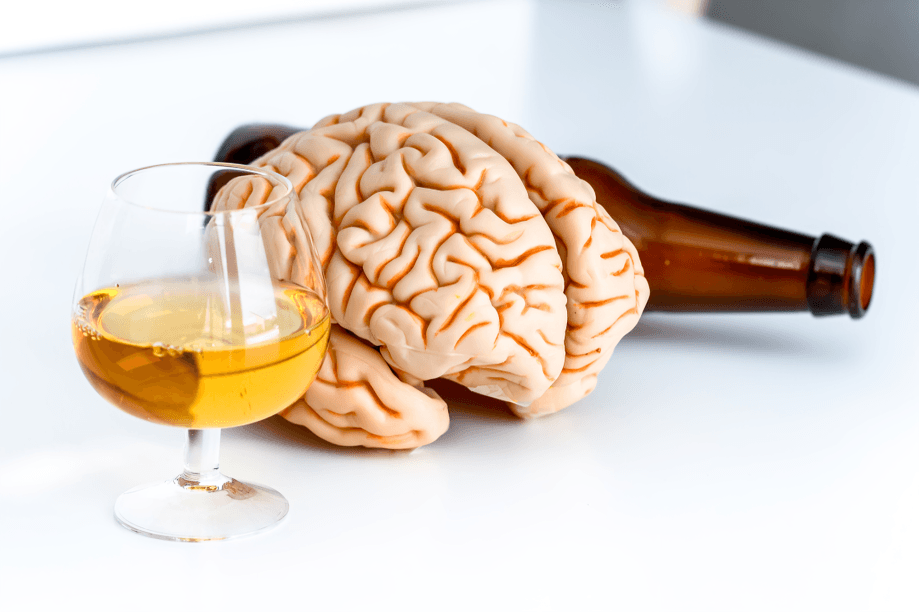
“
Alcohol and mental health are complex topics that many overlook. Consuming alcohol in excess can negatively affect both mental and physical health. This article explores how much is too much and provides insights into how alcohol impacts mental well-being.1
1
”
Excessive alcohol consumption can significantly impair brain function, decision-making, and emotional regulation. Chronic use often leads to cognitive decline, mental health disorders, and an increased risk of depression. 1
Alcohol abuse is closely linked to depression. People who drink heavily may experience emotional lows due to alcohol’s effects on serotonin levels, which are vital for regulating mood and emotions. 2

Regular, heavy drinking can disrupt sleep patterns, leading to insomnia and poor quality of rest. This sleep deprivation can worsen mental health conditions such as anxiety, depression, and stress.
Alcohol is a depressant, meaning it can lower brain activity. Though it may initially create a sense of euphoria, long-term overconsumption often leads to feelings of sadness, irritability, and emotional instability. 3
The connection between alcohol use and suicide is undeniable. People suffering from alcoholism are more prone to suicidal thoughts due to both alcohol’s depressant nature and underlying mental health issues. The connection between alcohol use and suicide is undeniable. People suffering from alcoholism are more prone to suicidal thoughts due to both alcohol’s depressant nature and underlying mental health issues. 4
Alcohol’s impact on the brain’s neurotransmitters can result in feelings of aggression, irritability, and mood swings. Chronic consumption can increase the risk of developing personality disorders and other mental health problems. 5
Alcohol-induced blackouts can disrupt memory function, leading to cognitive impairments and long-term memory problems. These blackouts can be signs of more severe mental health issues related to heavy drinking. 6
The effects of alcohol on mental health can vary by individual. Factors like genetics, mental health history, and frequency of consumption all play a role in determining how alcohol affects a person’s psyche. 7
Alcohol is often used as a form of self-medication for mental health problems, but it worsens conditions like depression and anxiety over time. It only offers temporary relief, masking the root cause. 8

Alcohol use and mental health are interconnected; drinking to cope with stress or sadness can lead to a vicious cycle, where alcohol worsens mental health symptoms, creating a feedback loop of dependence.
Adolescents and young adults are particularly vulnerable to alcohol’s effects on mental health. Early drinking can lead to developmental issues, impairing emotional regulation and increasing the risk of mental health disorders later in life. 9
Chronic alcohol use can cause structural changes in the brain, particularly in areas responsible for decision-making. These changes can exacerbate existing mental health disorders, leading to permanent cognitive damage. 10
Binge drinking is linked to an increased risk of developing mental health conditions like depression, anxiety, and psychosis. The sudden and severe impact on the brain’s chemistry can trigger mood disorders. 11
Mental health issues like depression and anxiety can worsen when combined with alcohol use. Individuals who drink heavily are less likely to seek help for their mental health, perpetuating feelings of isolation. 12
Studies show that people with a family history of alcoholism are at a higher risk of developing mental health disorders. Genetic factors and environmental stressors can heighten the risk of alcohol dependency. 13

Alcohol can disrupt the brain’s ability to process emotions properly. This can lead to emotional numbness or extreme mood swings, both of which contribute to worsening mental health and difficulty managing relationships.
Heavy alcohol consumption can contribute to social isolation, a major risk factor for mental health problems. The cycle of drinking and withdrawing from others often leads to feelings of loneliness and emotional distress. 14
The link between alcohol use and cognitive decline becomes more apparent with age. Older adults who drink heavily are at a higher risk of developing dementia, memory loss, and other cognitive disorders. 15
Alcohol’s effects on mental health can vary based on the amount consumed. While moderate drinking may have less of an impact, excessive or prolonged use is strongly correlated with the onset of psychiatric disorders. 16
Alcohol can impair decision-making, leading to poor lifestyle choices like unhealthy eating, lack of exercise, and increased stress, which further worsen mental health conditions. 17


